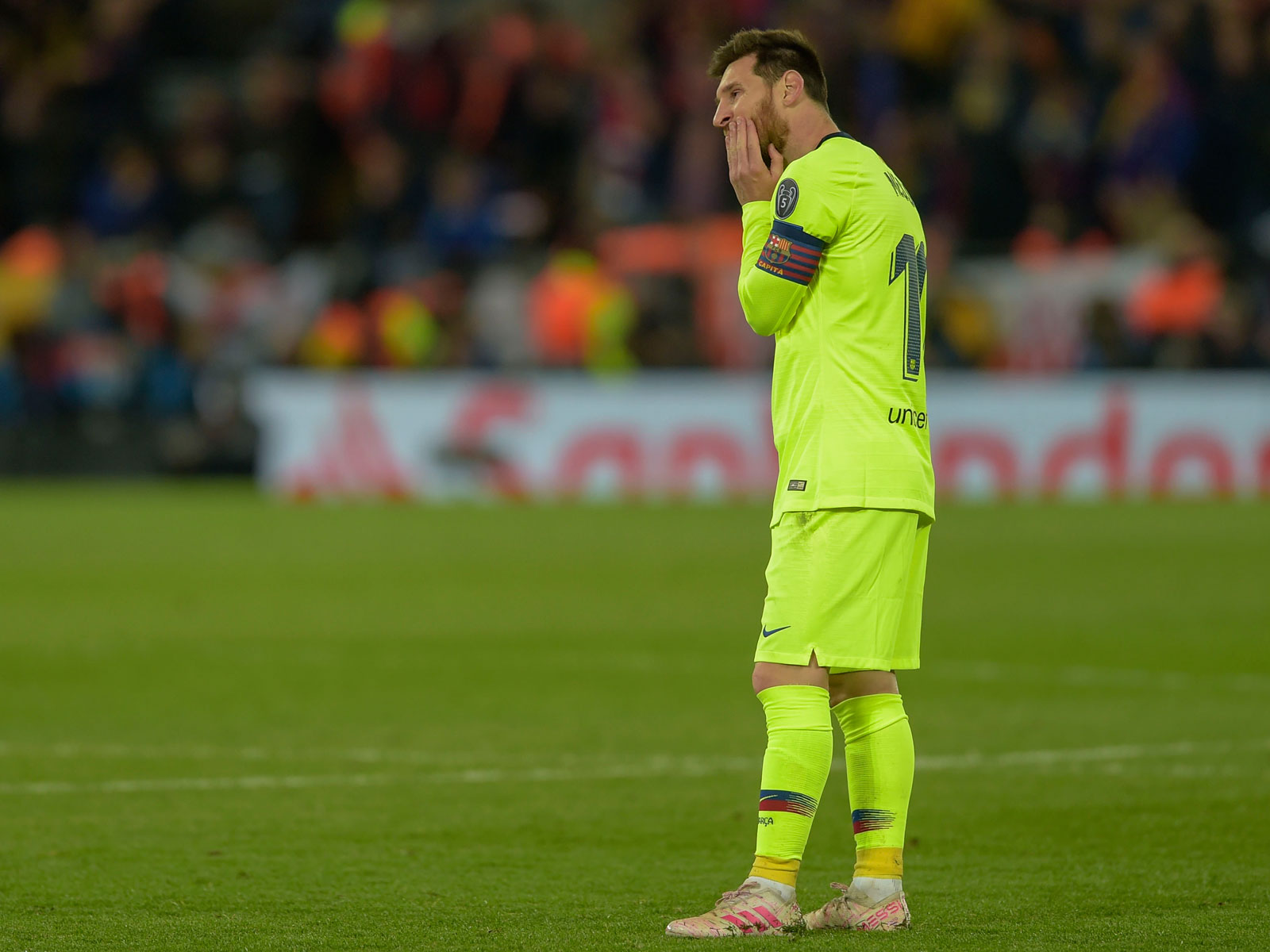Anatomy of a Miracle: How Liverpool Came Back to Stun Barcelona

If you have clichés, prepare to shed them now. Everybody talks about the famous European nights at Anfield, about St. Etienne and Olympiakos, about Borussia Dortmund and Manchester City. But even in the catalogue of great occasions, extraordinary results and implausible comebacks this ground has witnessed, there has been nothing like this. The plan, Jurgen Klopp had said, was: “Just try. If we can do it, wonderful. If not, then fail in the most beautiful way.”
Instead, it succeeded in the most beautiful way.
Liverpool will play in the Champions League final. With two goals from Divock Origi and two from Georginio Wijnaldum, two implausible figures, it beat Barcelona 4-0 and the impossible became real. The truth is it shouldn’t have been a contest. Yes, there had been five second-leg comebacks from two goals or more down in the Champions League since the start of 2017. Yes, two of those had been from three goals down. Yes, modern interpretations of the laws, modern tactical approaches, even the economics of the modern game have made defending more difficult. But there was no away goal to complicate things this year, as there had been last season for Barcelona, when it squandered a 4-1 lead against Roma in the quarterfinals. And Liverpool was without two of its regular front three, with Roberto Firmino and Mohamed Salah–the latter of which appropriately donned a shirt emblazoned with "NEVER GIVE UP" across the front–both out injured.
By halftime, Liverpool was without its first-choice left back, with Andy Robertson forced out of the game after a sly kick from Luis Suarez. But it was Robertson’s replacement, Wijnaldum, whose two goals early in the second half leveled the tie. Trent Alexander-Arnold was superb. Fabinho was magnificent. Sadio Mane rampaged down the flank. Jordan Henderson was tireless. Virgil van Dijk and Joel Matip were colossal.
🔴SCENES 🔴
— SI Soccer (@si_soccer) May 7, 2019
What an amazing postgame moment at Anfield after one of the greatest comebacks in #UCL history
(via @UnivisionSports) pic.twitter.com/7xUDYMkThe
Liverpool did what it had to do and started at a furious tempo. Barcelona, as it had early in the second half of the first leg, was rattled, but this time Liverpool’s domination brought reward, with Origi knocking in the first Champions League goal of his career after Jordan Henderson’s effort had been parried by Marc-Andre ter-Stegen. The goal stemmed from an error from Jordi Alba, who had a difficult night against Xherdan Shaqiri, in on the Liverpool right in place of Salah.
Inevitably, the game was open, even more open than it had been last week. Inevitably, there were chances at both ends, but this time Barcelona wasn’t as clinical as it had been, Liverpool not so wasteful. The lesson of the first leg was that Barcelona can be shaken, that the sort of pace and power this Liverpool seems endlessly capable of delivering will shake it from its stride.

The beginning of the second half brought a renewed assault–and this time there was even more reward. Liverpool was unfortunate at the Camp Nou, yet here the breaks started to go its way. Alba was at fault for the second as well, dispossessed by Alexander-Arnold, whose cross was deflected into the path of Wijnaldum. The Dutchman smashed a low finish through ter Stegen, and the comeback was most definitely one. Two minutes, 21 seconds later–31 seconds of actual playing time–Wijnaldum headed in his second, guiding in a left-wing cross from Shaqiri. It was only his sixth touch since coming on.
Liverpool, suddenly with something to lose, with fatigue perhaps sapping at its legs, then became tentative, knowing that one Barcelona goal would've forced it to need two thanks to the away goal tiebreaker. But the momentum was with the hosts. Alexander-Arnold won a corner, pretended he was walking away from it and, as Barcelona dozed, pivoted and whipped the ball to Origi, who smashed in his second. The Belgian has been a bit-part player this season. He’s only played a full 90 minutes twice. He’s only scored six goals, and yet two of those were last-minute winners to keep Liverpool’s league title challenge alive, and two of them were here.
This actually worked. What a shrewd move from Trent Alexander-Arnold!
— SI Soccer (@si_soccer) May 7, 2019
(via @brlive) https://t.co/6COjLLrAKi
There were still 11 minutes plus five of injury time to go, 16 minutes haunted by the possibility of an away goal. But Liverpool had the discipline and the courage to hold out. Barcelona, as it turned out, had gone, psychologically shattered by the assault. It succumbed in the end, remarkably meekly.
But perhaps that was all it could do. Over two legs, it was battered. In retrospect, the result that was out of keeping was not the one at Anfield but instead the one at Camp Nou. This was one of the greatest two-legged performances Liverpool has ever produced and it culminated in a second half nobody at Anfield will ever forget.
